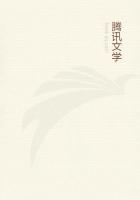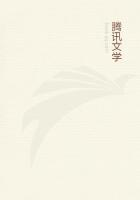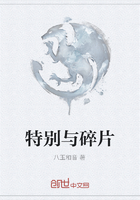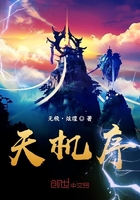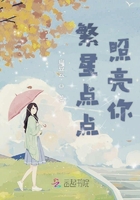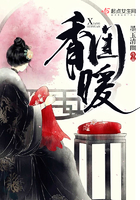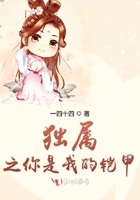In a word, his marriage with Mademoiselle Sophie Andreevna Bers (daughter of Dr. Bers of Moscow) was consummated in the autumn of 1862--after a somewhat protracted courtship, owing to her extreme youth--and Tolstoy entered upon a period of happiness and mental peace such as he had never known. His letters of this period to Countess A. A. Tolstoy, his friend Fet, and others, ring with enraptured allusions to his new-found joy. Lassitude and indecision, mysti-cism and altruism, all were swept aside by the im-petus of triumphant love and of all-sufficing conjugal happiness. When in June of the follow-ing year a child was born, and the young wife, her features suffused with "a supernatural beauty" lay trying to smile at the husband who knelt sobbing beside her, Tolstoy must have real-ised that for once his prophetic intuition had been unequal to its task. If his imagination could have conceived in prenuptial days what depths of emotion might be wakened by fatherhood, he would not have treated the birth of Masha's first child in "Conjugal Happiness" as a trivial ma-terial event, in no way affecting the mutual rela-tions of the disillusioned pair. He would have understood that at this supreme crisis, rather than in the vernal hour of love's avowal, the heart is illumined with a joy which is fated "never to re-turn."
The parting of the ways, so soon reached by Serge and Masha, was in fact delayed in Tolstoy's own life by his wife's intelligent assistance in his literary work as an untiring amanuensis, and in the mutual anxieties and pleasures attending the care of a large family of young children. Wider horizons opened to his mental vision, his whole being was quickened and invigorated. "War and Peace," "Anna Karenina," all the splendid fruit of the teeming years following upon his mar-riage, bear witness to the stimulus which his genius had received. His dawning recognition of the power and extent of female influence appears in-cidentally in the sketches of high society in those two masterpieces as well as in the eloquent closing passages of "What then must we do?" (1886).
Having affirmed that "it is women who form pub-lic opinion, and in our day women are particu-larly powerful," he finally draws a picture of the ideal wife who shall urge her husband and train her children to self-sacrifice. "Such women rule men and are their guiding stars. O women--mothers! The salvation of the world lies in your hands!" In that appeal to the mothers of the world there lurks a protest which in later writings developed into overwhelming condemnation.
True, he chose motherhood for the type of self-sacrificing love in the treatise "On Life," which appeared soon after "What then must we do?" but maternal love, as exemplified in his own home and elsewhere, appeared to him as a noble in-stinct perversely directed.
The roots of maternal love are sunk deep in conservatism. The child's physical well-being is the first essential in the mother's eyes--the growth of a vigorous body by which a vigorous mind may be fitly tenanted--and this form of materialism which Tolstoy as a father accepted, Tolstoy as idealist condemned; while the penury he courted as a lightening of his soul's burden was averted by the strenuous exertions of his wife.
So a rift grew without blame attaching to either, and Tolstoy henceforward wandered solitary in spirit through a wilderness of thought, seeking rest and finding none, coming perilously near to suicide before he reached haven.
To many it will seem that the finest outcome of that period of mental groping, internal strug-gle, and contending with current ideas, lies in the above-mentioned "What then must we do?"
Certain it is that no human document ever re-vealed the soul of its author with greater sincer-ity. Not for its practical suggestions, but for its impassioned humanity, its infectious altruism, "What then must we do?" takes its rank among the world's few living books. It marks that stage of Tolstoy's evolution when he made successive essays in practical philanthropy which filled him with discouragement, yet were "of use to his soul" in teaching him how far below the surface lie the seeds of human misery. The slums of Moscow, crowded with beings sunk beyond re-demption; the famine-stricken plains of Samara where disease and starvation reigned, notwith-standing the stream of charity set flowing by Tol-stoy's appeals and notwithstanding his untiring personal devotion, strengthened further the con-viction, so constantly affirmed in his writings, of the impotence of money to alleviate distress.
Whatever negations of this dictum our own sys-tems of charitable organizations may appear to offer, there can be no question but that in Russia it held and holds true.
The social condition of Russia is like a tideless sea, whose sullen quiescence is broken from time to time by terrific storms which spend themselves in unavailing fury. Reaction follows upon every forward motion, and the advance made by each succeeding generation is barely perceptible.
But in the period of peace following upon the close of the Crimean War the soul of the Russian people was deeply stirred by the spirit of Prog-ress, and hope rose high on the accession of Alex-ander II.

